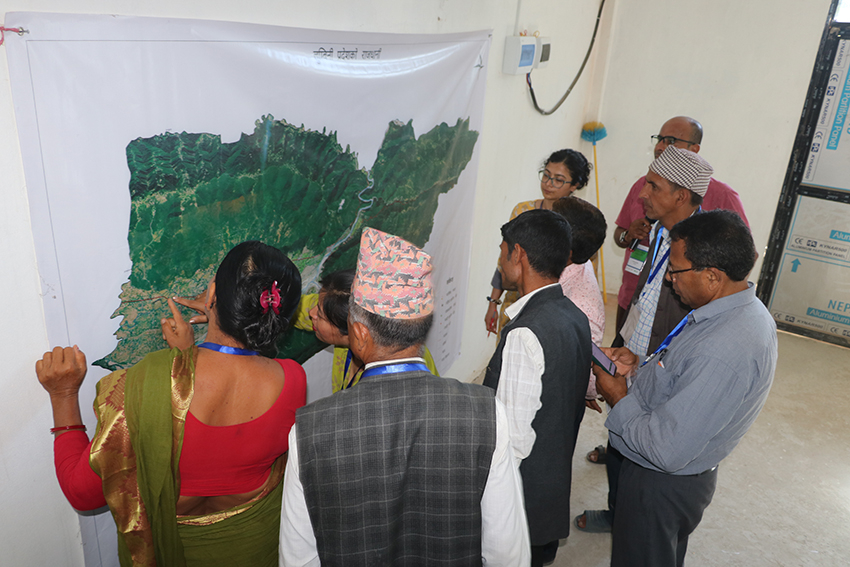
Nestled in the foothills of the Chure mountains, the Rapti region is home to a multitude of communities, each proudly bearing its distinct identity and cultural heritage. Over the years, these communities have encountered unique challenges while also facing common difficulties. Some of these difficulties are associated with the diverse topography of the region and its natural hazards such as floods and landslides.
During Future Visioning activities, Tomorrow’s Cities researchers have worked with each of these groups to understand the challenges they have faced in the past, what concerns them at present and what aspirations they have for the future of their region. After all, one of the Hub’s ethos is intergenerational justice, and although the current Rapti inhabitants might not enjoy all the fruits of this co-creation process, future generations will.
The Migrant Community of the Deukhuri Valley, Rapti.
Migrants who relocated from the neighbouring districts of Pyuthan, Rolpa, Gulmi and Arghakhanchi, to Rapti in search of fertile land, access to education and health services and an overall better quality of life, have, over the years, encountered a challenging and demanding environment marked by geographic obstacles, inadequate infrastructure, and deeply rooted traditional practices. However, they have also enjoyed the advantages of a tightly knit community.
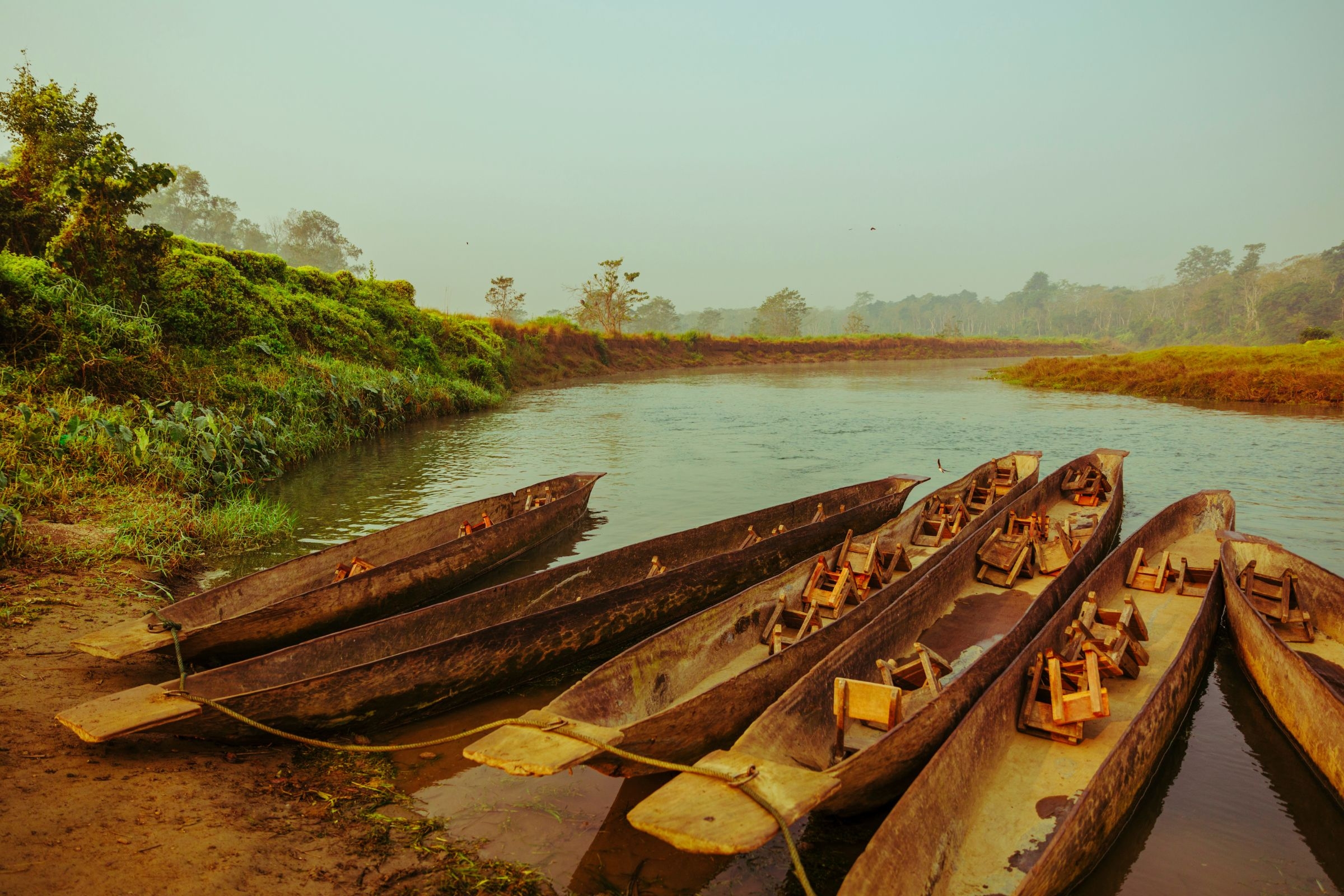
Rapti River.
"My life's journey began amidst the rolling hills of Pyuthan, Ratamaata, where I spent my childhood. In 1975 I finished school and a year later, I embarked on a new adventure, migrating to Dang, Deukhuri, where I balanced higher education with the demands of a job. In 1989, I started my own rice mill, and later a hardware business in 2001. During this time, I’ve always engaged in various social organizations and cooperatives, dedicating great part of my time to the community. Throughout this journey, my family has been my rock, and their unwavering support has been my greatest blessing. I believe that my life’s story is a testament to the importance of hard work but also of the importance of the community values instilled in me from my childhood in Pyuthan."
- Kiran, migrant from Pyuthan.
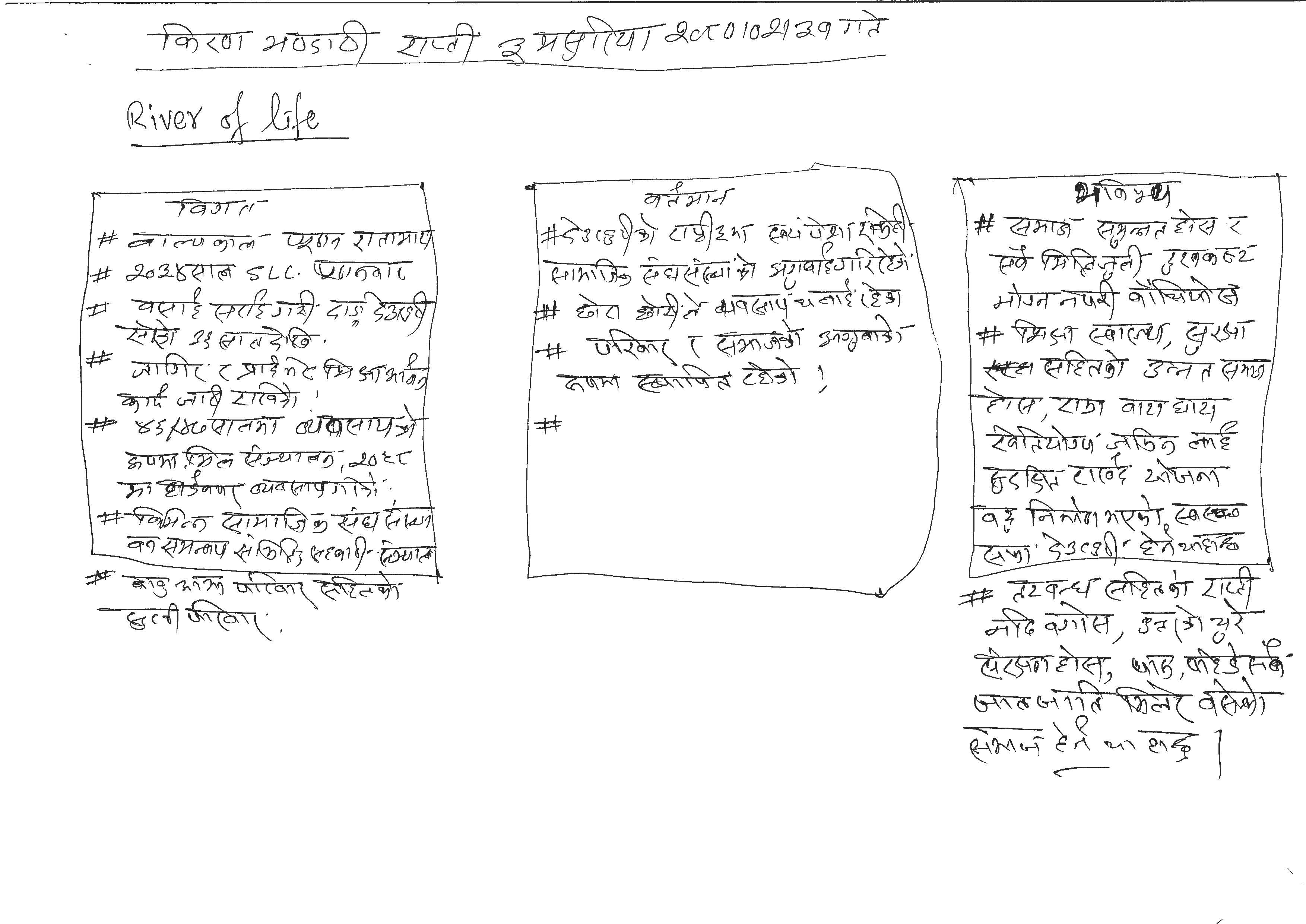
River of Life as told by Kiran where he recalls his past, addresses the present, and envisages the future.
Our team has heard stories about infrastructural issues, such as the absence of roads and bridges which made it difficult to access essential services like schools, markets, and healthcare facilities; limited economic opportunities that forced many into labour from a young age and to migrate to other regions. Nonetheless, their resilience and commitment to their communities shone through in their social engagement and management of the region’s lush forests and rivers.
"My journey goes back to the village of Mahadewa, nestled between three rivers. It was a place where dense forests thrived, and the gentle flow of rivers and streams didn't pose a risk or worried us. In those days, the lack of roads meant we had to undertake arduous journeys on foot to Koilabaas, the border with India, just to purchase groceries, clothing, and fuels. My path to school was also by foot. Still, this daily routine fostered close bonds with my school friends as we shared lunches and laughed together.
At that time in Mahadewa traditions centred around respect for our elders and the care of our younger ones. It was a well-governed and ethical society, where the values of community and mutual support ran deep. Those early years in the village shaped me into the person I am today, instilling in me a profound appreciation for simplicity, tradition, and the strength of a close-knit community."
- Khageshwor, migrant from Mahadewa village.
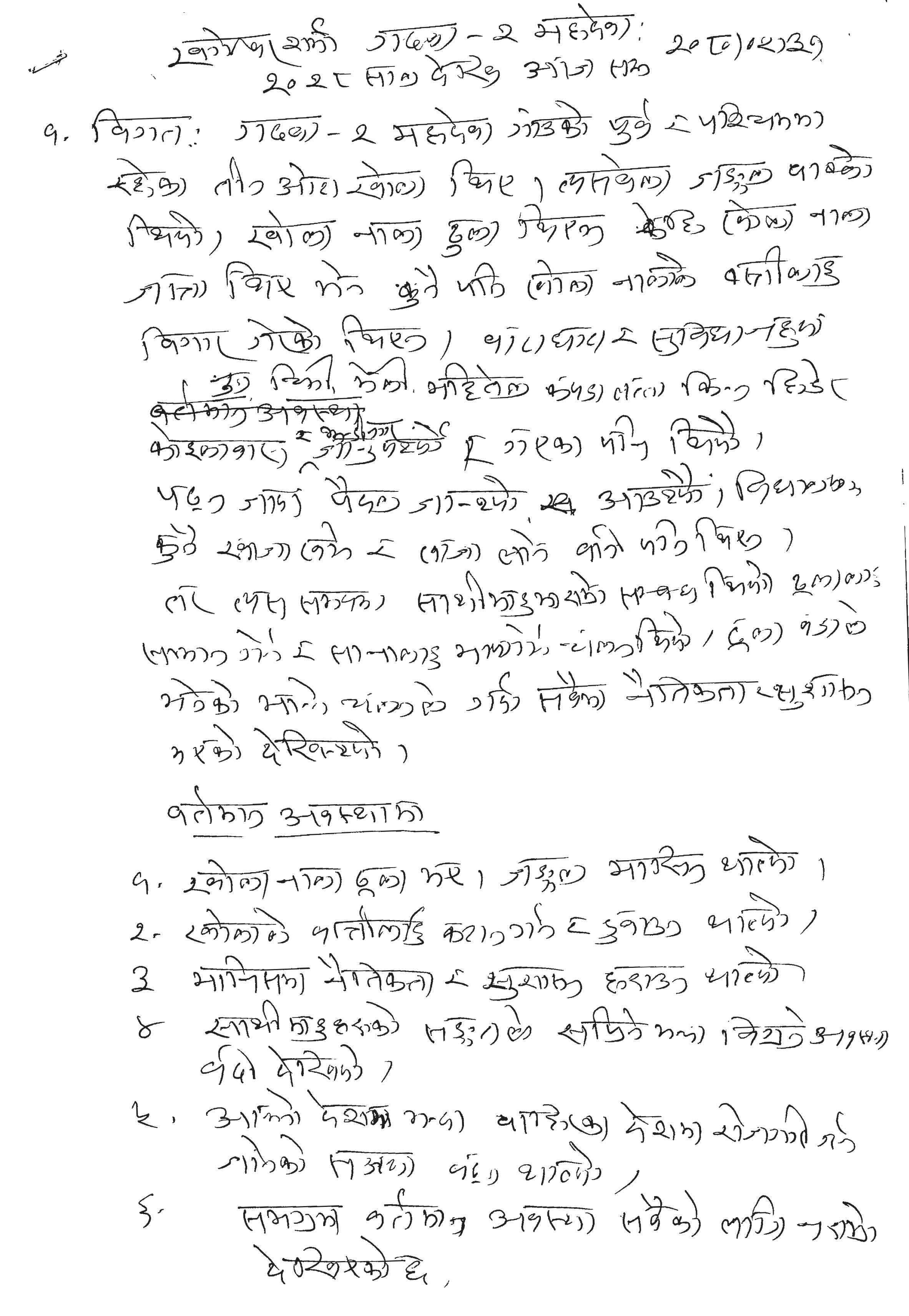
River of Life of Khageshwor, a migrant woman.
Today’s Challenges
For example, the construction of a bridge over the Rapti River and the development of accessible roadways have made commuting more convenient and improved access to education, healthcare and even markets. The region has embraced modernity, with the introduction of electricity and advanced communication facilities. Healthcare services have also improved, with vaccination provisions in place and access to drinking water. Improved irrigation facilities are now bolstering agricultural practices. Housing has also changed, and traditional thatched roofs have given way to modern homes, constructed with sturdy tin and brick materials, more resistant to earthquakes. On the social side, women now play a more active role, being included and engaged in various institutions, managing micro-finances and providing support to communities in agriculture and livestocks management, skill development and other aspects that improve the livelihood of many in the community.
While these developments are promising, challenges persist as managing riverine pollution and the unregulated extraction of natural resources still concern the population.
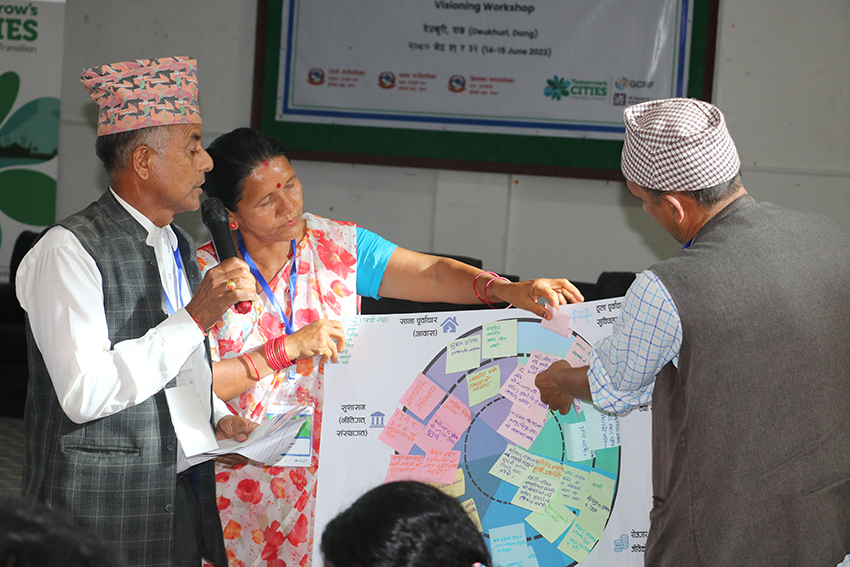
Participants of the Future Visioning workshop in Rapti, using the wheel of assets to lay their vision of the future.
"Dense settlements are increasingly vulnerable to the impacts of deforestation, which have amplified landslides during heavy rains. Furthermore, rivers banks are eroding, putting our communities at risk of inundation".
- Shree Ram
Tomorrow’s Rapti
Amidst the progress made and the hurdles they still face, this migrant community has a vision for the future. They yearn for enhanced infrastructure that minimizes travel distances between communities, sturdy homes that shield them from earthquakes, and a harmonious coexistence with their agricultural lands, all while safeguarding the integrity of their forests, rivers, and streams, protecting them from floods and landslides.
Overall, this community aspires to shape a future that harmoniously blends tradition with progress, culminating in a society that is both harmonious and sustainable. Their aspirations extend to a society where Tharu, migrants, and people of all castes coexist harmoniously, marked by the elimination of violence against women and the establishment of pay equity for all. Of course, none of this will be possible without adequate governance and decision-makers that respect the rule of law.
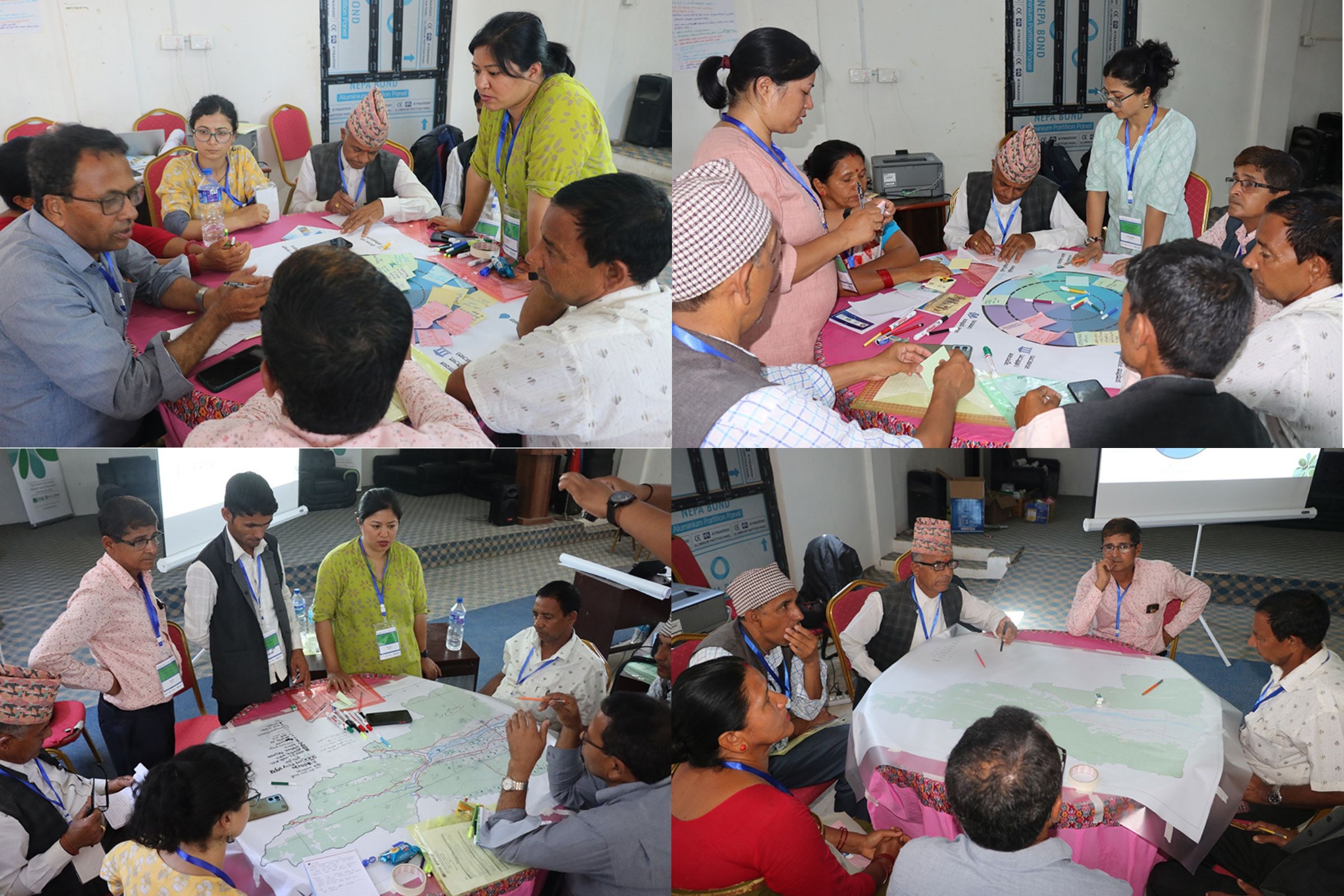
Migrants working with the guidance of Tomorrow's Cities Hub researchers and facilitators during the Future Visioning activities.
Learn More About Future Visioning